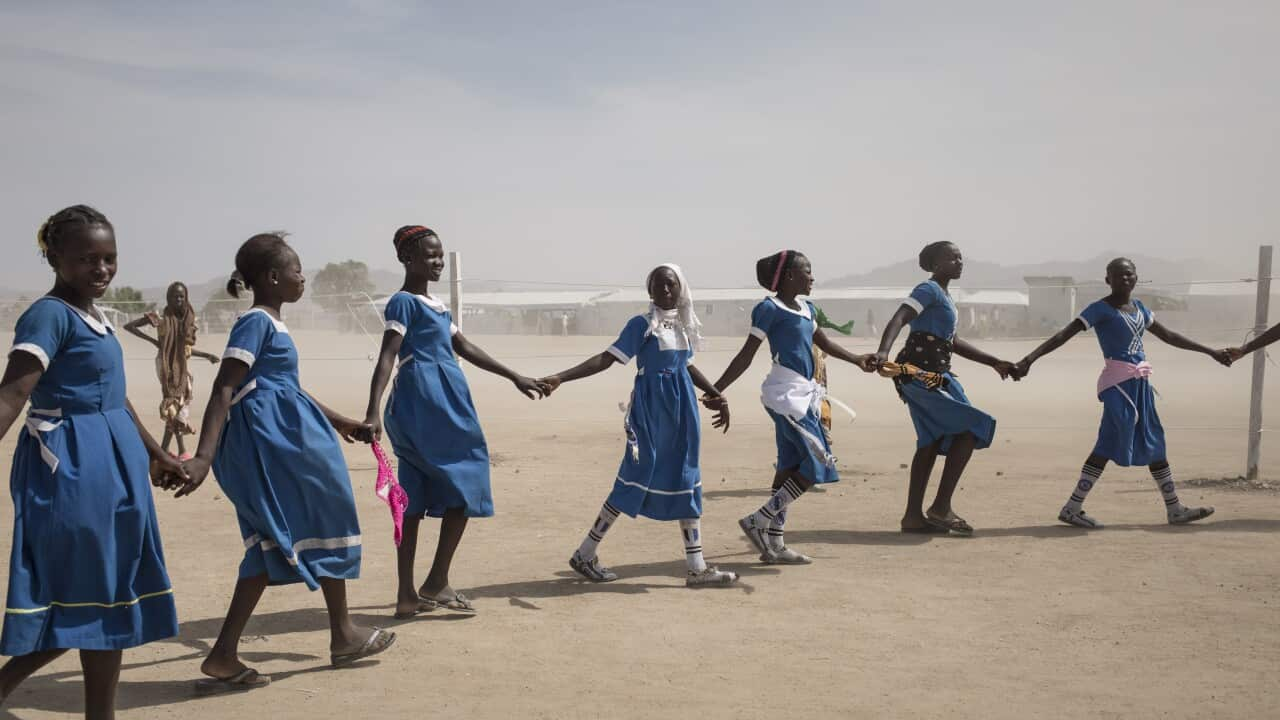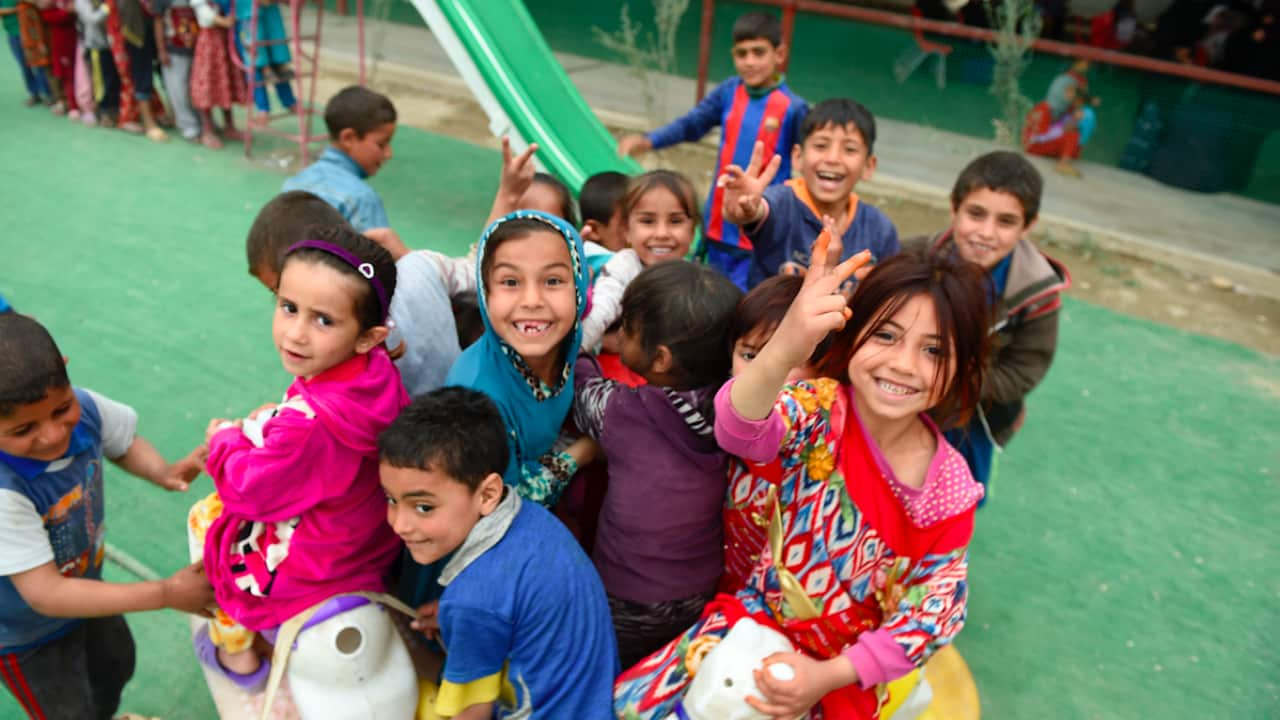A woman, she sustained from a bomb dropped near her house in the Yemeni province of Hajjah, sits for a photograph in her new home, an unused building in the city of Hudaydah.
whose house was destroyed in the Yemeni civil war, laments the demise of her homeland. old beyond their years.
These are some of the moving images that appear in the Instagram feed of Shabia Mantoo, the Australian-born spokesperson for UNHCR in Yemen.
Mantoo has been working in Yemen since July 2016. “Before I started my current assignment in #Yemen,” she writes in one post, “I made a personal promise that I would try and share as much as I could from this beautiful country.”
For Mantoo, working on the ground, each day is a little different. “My work covers the whole country so I make sure I get out to a different field office each month,” she says. “I work very closely with our field and programmatic units and with displaced and refugee communities, humanitarian partners, the media and the Yemeni public.”
Mantoo, who was born in Albury-Wodonga, gave up a corporate career to complete a Master of Laws degree, specialising in International Law. Before her posting to Yemen, she worked with UNHCR in Iraq on the mass displacement crisis and the Syrian refugee response, and at UNHCR’s global headquarters in Geneva.
It’s an immensely satisfying vocation, she says. “There is nothing as rewarding as being part of the collective effort to save lives and alleviate suffering of those most vulnerable in the most dire of circumstances. I believe humanitarianism is truly universal and is what defines the human condition.”
That said, she acknowledges it’s not a career for everyone. “Working in response to humanitarian crises means that at times you end up in active conflict zones like in Yemen so personal safety is always a concern. It also means extended periods away from family and friends.”
Working in response to humanitarian crises means that at times you end up in active conflict zones like in Yemen so personal safety is always a concern.
What’s happening in Yemen
Since March 2015, Yemen has been ravaged by fought between forces loyal to the government and Houthi rebels from the country’s south. The conflict, as well as a blockade and airstrikes by a Saudi-led coalition that supports the existing government, has contributed to the large-scale humanitarian disaster currently gripping Yemen.
UNHCR estimates that in Yemen are in current need of assistance. As many as 10,000 civilians have been killed in the conflict, which has seen millions of people flee their homes. While 180,000 Yemenis have sought refuge in neighbouring countries, as many as 2 million internally displaced people remain within its borders. Mantoo adds that around 17 million people don’t have enough food to eat and communicable diseases like cholera are a growing threat. Adding to the crisis are the 280,000 refugees who have fled to Yemen from other countries, primarily the Horn of Africa.
Yemen is an inventory of misery and people are suffering abysmally.
Despite the hardship faced by much of the country’s population, it remains mostly a forgotten crisis, says Mantoo. “Yemen is an inventory of misery and people are suffering abysmally. Despite the magnitude of the crisis, attention and support for the humanitarian response remains disproportionate. Many people the world over do not know what is happening in Yemen and the suffering of its people remain untold.”
Mantoo’s role is to support the humanitarian response in Yemen and the work of UNHCR in country by increasing awareness on the crisis and to make sure the situation on the ground gets out – “locally, regionally and globally”.
UNHCR’s work in Yemen - carried out in conjunction with its humanitarian partners and covering basic needs like shelter, health, food security, water, sanitation and hygiene - has been hindered by, what Mantoo says, is the international community’s limited response to the crisis. “To-date, less than 30 per cent of funding has been received which impacts on the amount of people we can reach with essential and life-saving support.” The Australian government however, Even still, Mantoo believes the UN’s humanitarian appeal remains vastly underfunded.
“Almost everyone in Yemen has been affected by the conflict in some way and the travesty is that the suffering, as catastrophic as it is, remains ignored. Any support that can be extended to the humanitarian response goes a long way and means that more lives can be saved or assisted.”
But most importantly, she adds, she hopes that in addition to financial support, that people the world over could “have more empathy and understanding of the plight and condition of people who are affected by conflict and forcibly displaced”.
“At the end of the day, whether Sana’a or Sydney people are just people and most of us yearn for the same things in life- peace, security, happiness and prosperity. Nobody chooses to be a refugee or a victim of conflict.”
“People who have been forced from their homes are caught in circumstances beyond their control. In this day and age with so much global insecurity and uncertainty there is a tendency to turn inwards but we shouldn’t let our humanity and compassion be curtailed by fear or misunderstanding.”
will be held on Tuesday 20 June and will be run nationwide from Sunday 18 June. To mark the occasion, SBS On Demand will feature a number of groundbreaking and moving shows capturing refugee stories throughout the week. Here's what's showing:
- The documentary, Baulkham Hills African Ladies Troupe.
- The Insight episode 'Getting Better’ focusing on Yordanos’s healing journey (one of the troupe's members).
- A special episode of Dateline, ‘Daughter of Sierra Leonne’ (the story of Aminata, who is also from the troupe).
- Black Market: Syrian Refugee Girls.
- The Forgotten Orphan Refugees.





